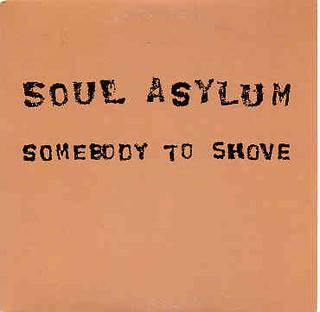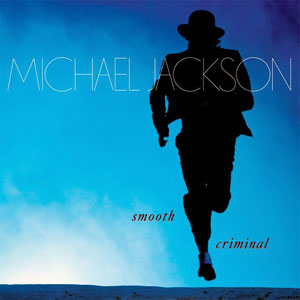Song: "Space Is The Place"
Album: Space Is The Place
Year: 1973
CLICK HERE TO LISTEN (will open in new tab)
Though it is one of the most widely used terms to reference an artist who cannot be easily categorized, there are very few performers that are truly deserving of the term "avant." These handful of musical pioneers were able to create sounds that were so different, yet so impossible to ignore, that their names alone became the only accurate way to describe their sound. One can find examples of such performers in nearly every era, and yet few were as "out there" as one finds within the mind-blowing catalog of the great Sun Ra. For more than four decades, he constantly pushed the limits on what could be called "music," and in the process, he became a massive influence on a wide-range of artists across the generations. After spending a number of years as a musical arranger and freelance pianist, he finally formed his own group in the mid-1950's, which he dubbed The Arkestra. While the early recordings of this group certainly had a strong foothold in the bop style, they were soon off in a completely unpredictable direction, and it was in these years where the true genius that is Sun Ra can be found. Throughout his recordings in the 1950's and 1960's, it is almost impossible to find a Sun Ra recording that is anything short of superb, and yet it is his 1973 masterpiece, Space Is The Place, where one can find the band at their creative peak. Fusing together countless instruments and genres, there is simply nothing else in music history that even remotely compares to the sheer brilliance on the title track of the album.
Within moments of "Space Is The Place" beginning, the mission of both the song and Sun Ra's sound are abundantly clear, as almost sci-fi style organs and bass pulse from Pat Patrick across the track. The mood that is created here persists throughout the twenty-one minute length of the song, and the fact that the band is able to keep this mood intact for such a long time is a testament to both their talents, as well as their focus. The sound is soon complimented by the baritone saxophone of Danny Thompson, and the way in which his playing seems to sway behind the rhythm of the keys is true musical bliss. As these two sounds become more intertwined with each moment, "Space Is The Place" pulls the listener in deeper, and there are few songs that are as completely enveloping an experience as one finds here. As the rest of the band joins in, it becomes impossible to push the sound into a single category, as there are elements of big band, swing, jazz, funk, and a number of other styles all weaving in and around one another. The way in which there is a clear focus and even a "calm" within the performance of all the musicians is where one can fully appreciate the conducting talents of Sun Ra, and though it soon moves into one of the most amazing jams in history, the group never seems off track or even close to chaos. In many ways, it is this sound which can be seen as the very spirit of music, as each musician is letting their instrument guide them, and the sheer joy and beauty of this artistic exploration is what makes "Space Is The Place" a musical achievement beyond all others.
At every turn, the mood builds more and more, and it seems as if the band will never reach the peak of the song. To that point, there are a handful of different moments in the second half of the song that one can cite as the "turning point," as there are so many amazing instances of tension release. This is yet another way in which "Space Is The Place" sets itself far apart from the rest of recorded music, and the final portion of the song is where the equally impressive vocals take over the spotlight. Though a majority of the singing throughout the song is handled by June Tyson and Ruth Wright, as the song turns into the final segment, Cheryl Banks, Judith Holton, and Sun Ra himself all join in, each lending their unique sound and rhythmic pattern. Is is the fact that even in the vocals, there is a unique approach, that highlights the complete package that exists on "Space Is The Place," and there are moments where the various voices seem to almost be bouncing off of one another. Furthermore, the words that are being sung give a phenomenal interpretation of the music itself, as lyrics like, "...there's no limit to the things that you can do..." are both inspirational, as well as representative of the bands' musical approach. The way in which the vocals blend seamlessly with the music is the ideal finishing touch to "Space Is The Place," and one would be hard pressed to find a more complete musical work from any point in history.
Though the song is most closely based in jazz, there are so many musical elements at play throughout Sun Ra's extraordinary 1973 composition "Space Is The Place," that it is truly impossible to define it in any way other than its name. Yet even with the unquestionable musical mastery that is at play throughout the song, it also highlights the way in which many critics had difficultly in grasping the true genius within the music of Sun Ra. The way in which the music is almost erratic at times, combined with his notorious habit of not listing all of the players involved made his music almost confrontational, and surely these almost inconsequential elements prevented a wider spread of his brilliant sound. However, even with this reality in play, one cannot deny the massive amount of impact that Sun Ra had on the landscape of modern music, and one can hear clear influences of his style in artists ranging from George Clinton to The MC5. This is perhaps more understandable when one considers that Sun Ra was constantly recording through the rise of so many different trends and technologies, and yet his music remained completely unique, regardless of the state of the world of music around him. With so many of these recordings being absolute "classics," it is rather difficult to single out a specific album as his "best work" or "most essential" recording. However, Sun Ra's 1973 album, Space Is The Place, is easily one of the greatest musical achievements in history, and the title track may very well be the most extraordinary, yet indescribable moment ever captured on tape.














